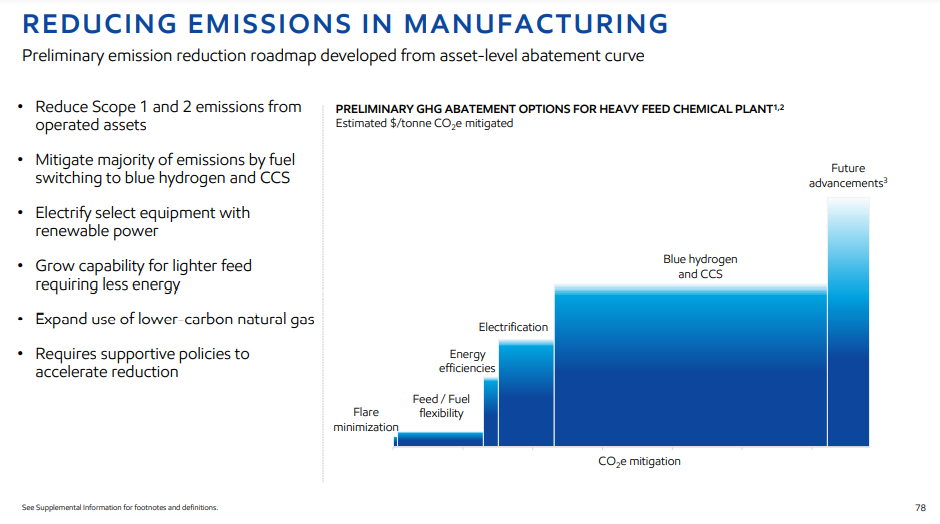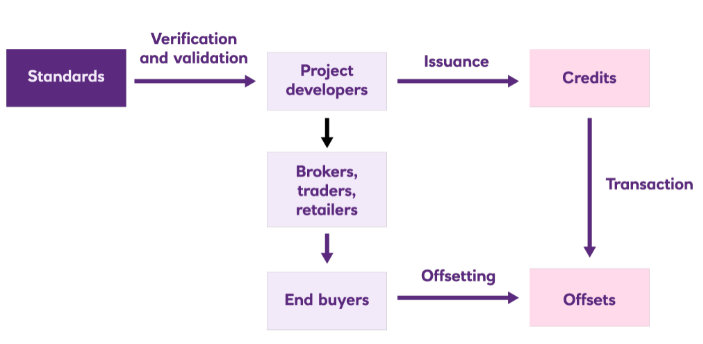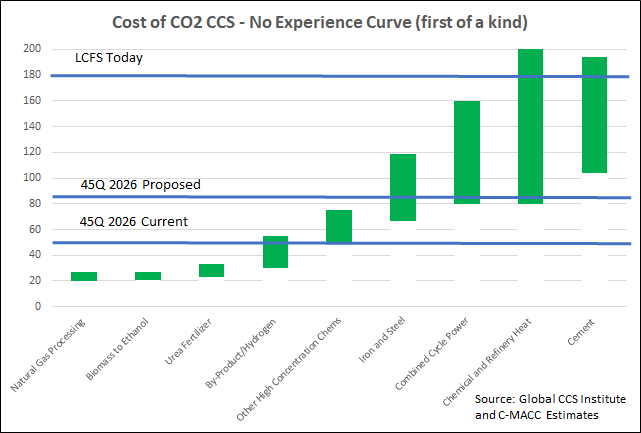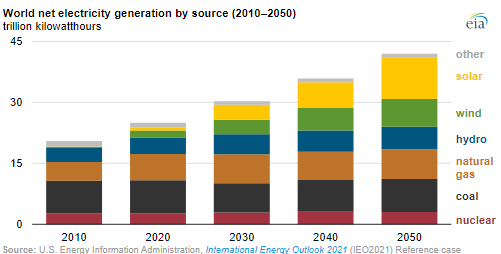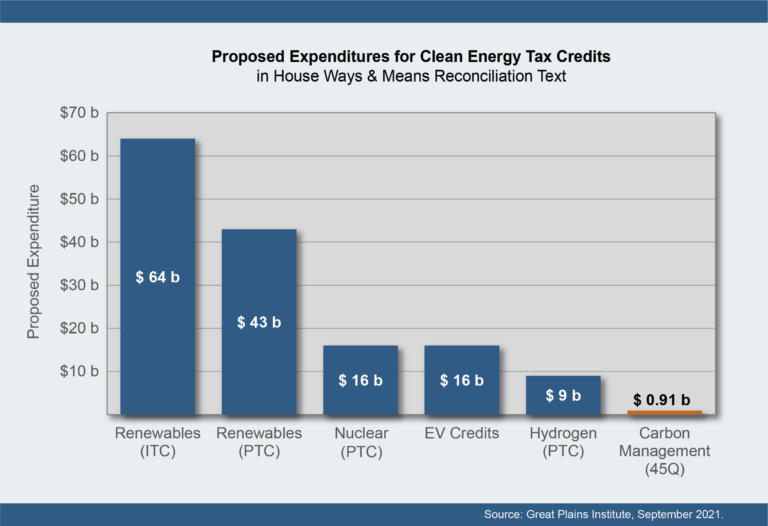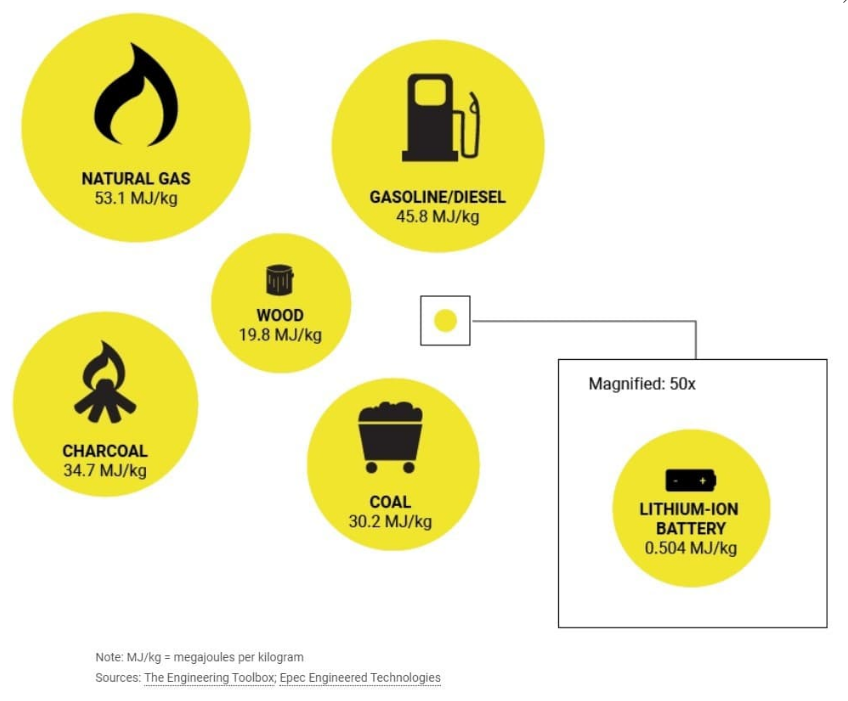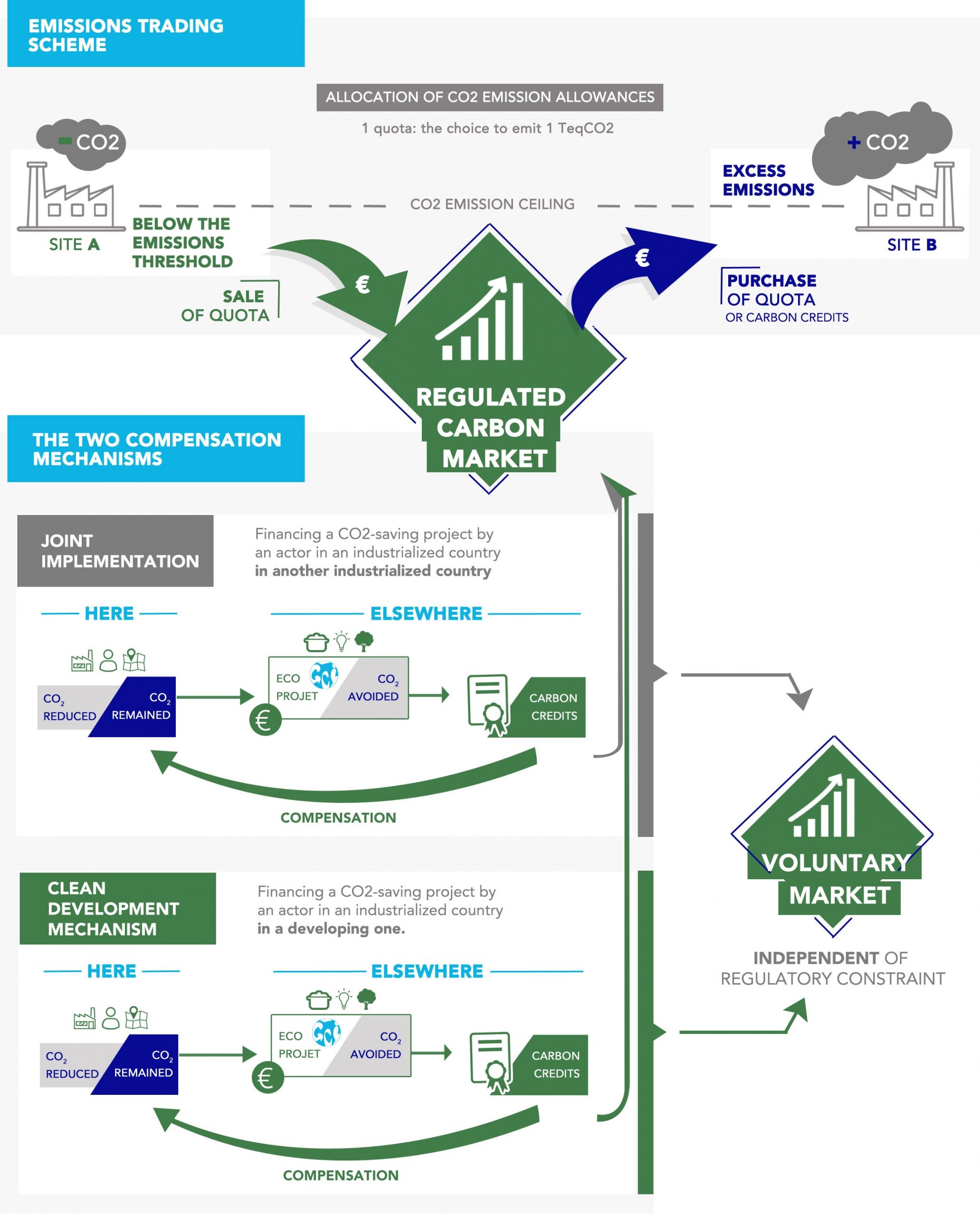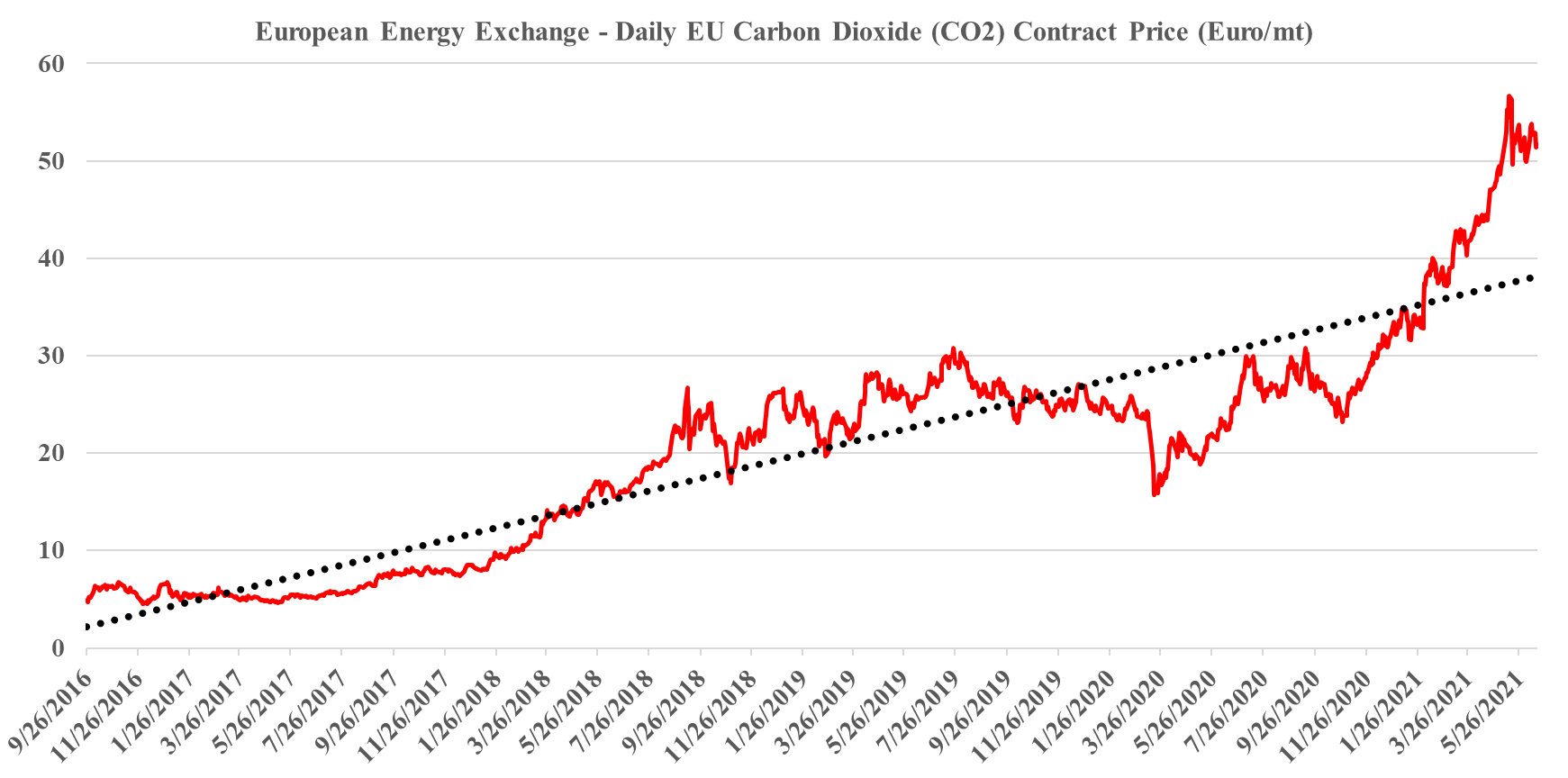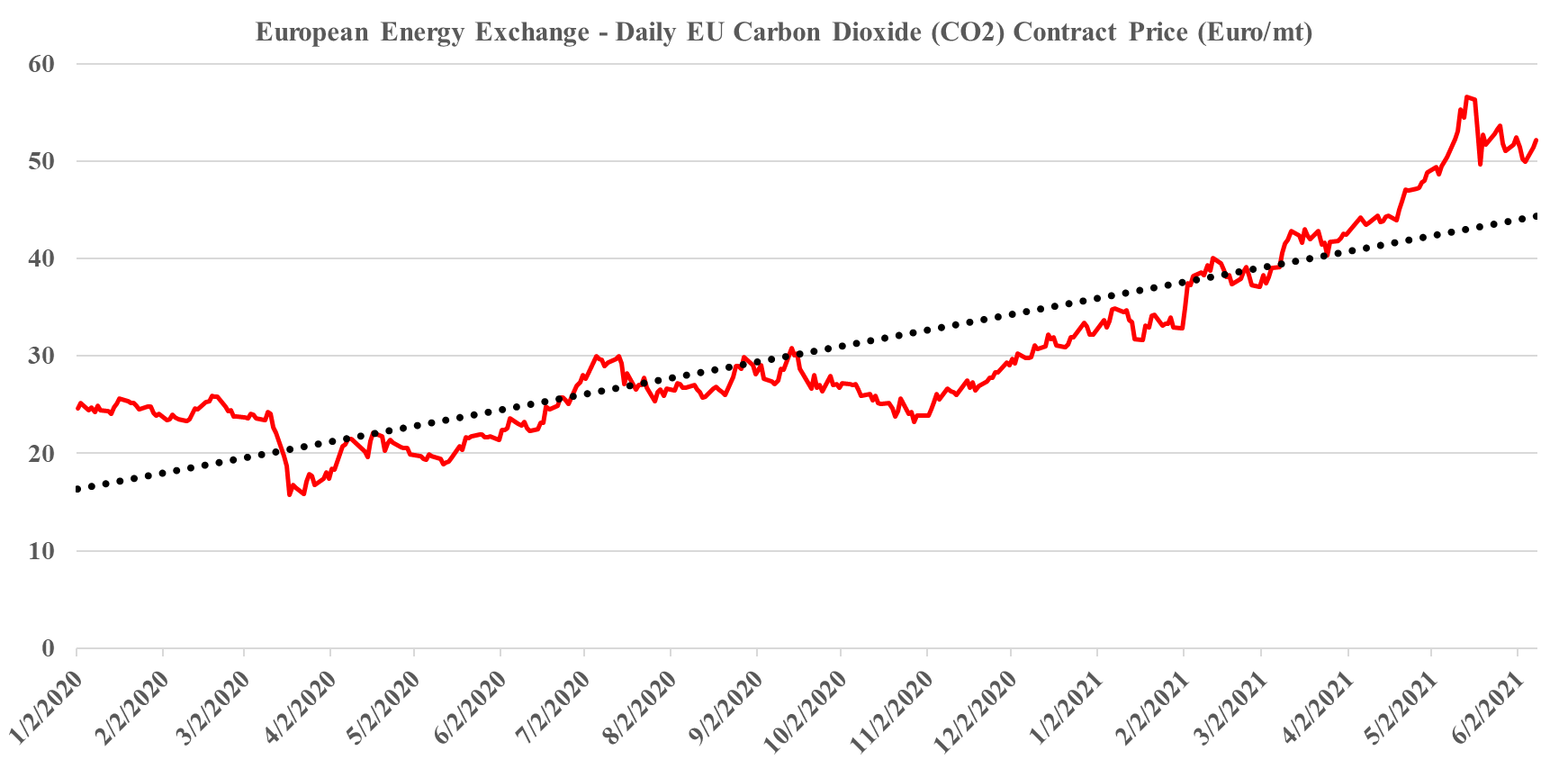Playing right into the central argument of our ESG and Climate report is today’s ExxonMobil investor day, and we include a couple of key slides around the company's proposed path to net-zero below. The first slide shows just how much blue hydrogen (with CCS) the company plans to add to offset its emission-generating fuels – the volumes implied in the chart are high.
ExxonMobil: Illustrating That Energy Transition Can Be Done (With The Right Policies)
Mar 2, 2022 1:14:58 PM / by Graham Copley posted in ESG, Hydrogen, Carbon Capture, Climate Change, Sustainability, CCS, Blue Hydrogen, CO2, ExxonMobil, Net-Zero, carbon credit, carbon cost, energy transition
Carbon Offsets: Definitions Are More Important Than Trading Architecture
Dec 16, 2021 1:51:21 PM / by Graham Copley posted in ESG, Carbon Capture, Sustainability, CO2, Emissions, ESG Investing, carbon credit, carbon offsets, direct air capture, carbon offset, climate, carbon credits, carbon prices
The carbon credit schematic below helps understand the mechanics, but the diagram does not sufficiently emphasize the critical importance of the “Verification and Validation” step. This is a great example of a mechanism that should work logically, but if the input is wrong the output will be also. Potential buyers and sellers of carbon credits understand the process well, but they are more concerned about what goes in the front end as the value of the credit will be very dependent on the quality. Today the only “sure thing” carbon offset is direct air capture, as all of the agriculture-based offsets need much tighter definitions. See research - Carbon Prices – Inequitable and Uncertain – Not What We Need
The US Remains Divided On How To Price Carbon
Nov 3, 2021 1:34:59 PM / by Graham Copley posted in ESG, Carbon Capture, Sustainability, LNG, CCS, CO2, Energy, Emissions, Carbon Price, carbon credit, renewables, LCFS credit, COP26
We want to focus today on the headlines around the possible increase in the 45Q CCS credit in the US and discuss the false logic of those that are objecting to it. There is no scenario where the US can move to a lower emissions power and transport profile while avoiding runaway inflation and social disorder without the continued use of fossil fuel-based power and transportation fuels for decades. The reliance on these fuels should and will decline over the years, but it is unreasonable to expect a transition that causes it to stop overnight. In the meantime, CCS is a mechanism that would allow fossil fuels to play a part with a much lower emissions footprint, and given that the CO2 impact on global warming is cumulative, if we can capture and store several billion tons of CO2 underground over that transition period it should be a good thing. Members of the Sierra Club and others would do well to look at the energy inflation problems in Europe and the move this week to put natural gas and nuclear back in the energy transition mix (too late in our view) because the move to renewables cannot keep pace with demand, which will grow faster as more EVs hit the road. The proposed 45Q credit is shown in the chart below vs. the current credit, the LCFS credit, and estimates of CCS costs.
Air Products Is Right On Carbon Capture, Washington Needs To Get On Board
Oct 15, 2021 2:42:27 PM / by Graham Copley posted in ESG, Carbon Capture, CCS, Blue Hydrogen, Energy, Air Products, Net-Zero, carbon credit, natural gas, EIA, COP26, energy sources
If you look back at our ESG and Climate piece this week (EIA View Suggests Natural Gas & CCS Critical To Net-Zero Goals), you will note that we focused on the recent EIA global energy outlook, and another chart from this outlook is shown below. In the ESG report, we talked about the global need to support increased “clean” natural gas use to offset as much of the coal predictions in the chart as possible and to drive additional hydrogen production to offset some of the petroleum product demand that the EIA still expects to be sued as a transport fuel in 2050. We also called for the broad and warm embrace of CCS so that some of the fossil fuel that the EIA is predicting – especially all of the fuel used for power in the exhibit below. Yesterday Air Products announced not only a large blue hydrogen complex for Louisiana but also the CCS to support it and made a very compelling argument in its presentation for the need for substantial volumes of blue hydrogen – something we fully agree with. We covered the subject in detail in yesterday’s daily. “Blue Is The Color, Hydrogen Is The Game…”
CCS: US Government Funding Expectations Seem Very Low
Sep 15, 2021 12:15:49 PM / by Graham Copley posted in ESG, Carbon Capture, Climate Change, Sustainability, CCS, CO2, ExxonMobil, carbon credit, carbon value, 45Q
The tax credits suggested for 45Q in the budget reconciliation plan – see Exhibit below – would pay for roughly 18 million tons of CO2 sequestered or used in EOR over the life of the budget, assuming a credit value of $50 per ton of carbon. While this may seem huge in the context of the current levels of CCS in the US, the country had around 2.5 billion tons of emissions in 2019 that could be addressed with CCS (power and industrials), and if we assume 10% of that needs to be dealt with through CCS, the 45Q provisions in the budget reconciliation would cover less than 8% of the volume for one year and the percentage will be even lower if the “CATCH” act is successful in driving the 45Q value to $85 per ton of CO2. So the numbers are either inadequate, or the government is assuming that the levels of CCS in the US will be much lower than the potential – note that the ExxonMobil proposal for a hub in and around Texas talked about the maximum size for the one project being as much as 100 million tons per annum which should equate to $5 billion of tax credits – per annum. See our ESG & Climate report for much more on carbon markets today.
Electric Planes Have Limited Use: Biofuels Are The Answer
Jul 22, 2021 2:06:58 PM / by Graham Copley posted in ESG, Hydrogen, Biofuels, decarbonization, Gevo, carbon credit, biofuel, Aemetis, carbon values, electric power, airline industry, energy density, Airbus, sustainable agriculture, low carbon biofuels, carbon-neutral biofuels, waste oil, vegetable oil, fermentation, low carbon fuel
The decarbonization of the airline industry remains a hot topic. The energy density issue shown in the exhibit below is a correct assessment of why commercial aviation faces a challenge to transition to electric power. Not only is the energy density too low - which restricts weight/range - but electric power can only turn things, and propellor-based flying has speed limitations relative to jets. The announcements from the airlines to date on electric power have focused on low capacity short-haul opportunities. With this in mind and as noted in the article headlining of the exhibit below, electric power is not the only decarbonizing option for airlines. Hydrogen is the very long-term future - Airbus is saying not before 2050, but in the meantime, the push should be for low carbon or carbon-neutral biofuels. These are essentially plug-in fuels that are identical to current aviation fuel but made either from waste oils or from carbohydrates. Many of the oil majors are working on waste oil or vegetable oil-based processes, especially in California where the LCFS credit helps pay for the conversion, and companies like Gevo and Aemetis are working on carbohydrate-based routes through fermentation. If the carbohydrate, corn in the case of Gevo, is sourced from sustainable agriculture the carbon values of the fuel can be very low and potentially zero or negative through the life cycle. The airlines are going to have to pay up for the low carbon fuel if they want to bid the fuel away from the high credit markets like California diesel and gasoline, but this route could decarbonize the airlines significantly and relatively quickly with the right pricing structure and enough capital.
Carbon Abatement – A Multi-client Analysis
Jul 7, 2021 1:01:06 PM / by Graham Copley posted in ESG, Carbon Capture, Climate Change, Carbon Tax, Carbon Fuels, CCS, CO2, Renewable Power, Carbon, Carbon Neutral, Emission Goals, Net-Zero, decarbonization, carbon footprint, ESG Fund, carbon dioxide, carbon credit, carbon value, carbon abatement, power, carbon cost, carbon offset, offsets, ESG investment, carbon emissions, clean energy, climate
A major initiative by C-MACC in collaboration with the Power Research Group
More Climate Discord Unlikely To Help Necessary Progress
Jun 18, 2021 1:51:45 PM / by Graham Copley posted in ESG, Climate Change, CO2, Carbon, Emissions, ESG Investing, carbon credit, investment managers, US Government, carbon values, carbon offsets, carbon trading
There have been some disappointing headlines out of the UN climate meeting this week, which is intended to pave the way for some of the COP26 discussions and come up with proposals that are likely to be agreed upon at the meeting. Most of the issues are around who is paying for what and whether developed nations are investing enough to help developing nations, using the guidelines put forward when the Paris Agreement was signed. In the US, the climate agenda and the Biden plan are bogged down in Congress and the plan is unlikely to pass in its current form.
We Need To Be More Inventive On Carbon Values In The US
Jun 16, 2021 2:00:36 PM / by Graham Copley posted in ESG, Hydrogen, Green Hydrogen, CCS, Blue Hydrogen, CO2, Emissions, carbon credit, carbon abatement
In our ESG and Climate report published today we focus on hydrogen and what we believe are some unrealistic cost/timing estimates for green hydrogen. One of our concerns is that the hope of cheap green hydrogen, and absent any other strong incentives, will put the brakes on other carbon abatement initiatives and if the cost of hydrogen does not fall we could reach 2030 having made little progress on any front.
Government Indecision Is Driving A Lack Of Climate Related Investment
Jun 9, 2021 1:28:47 PM / by Graham Copley posted in ESG, Hydrogen, Carbon Capture, Sustainability, Chemical Industry, Net-Zero, carbon credit, government guidance, plastics waste
Whether it is carbon capture, hydrogen investments (blue versus green or just in general), plastics waste, or any other aspect of the drive to greater sustainability and net-zero emissions, everyone is looking for a “playbook”; a set of rules that allow for more effective and less risky decision making. The headline linked that talks about the chemical industry needing governments to take more action is another such example. Companies facing increasing shareholder pressure to make change are not only looking for government guidance and possible incentives but they are also not wanting to second guess what any regulatory move might be. No one wants to make a significant capital decision if there is a risk that a government policy shift will make it the wrong move. The European carbon credit price – shown below is at least a framework that many European companies can use to value possible decisions – even if some European companies and countries are moving at different paces than others in terms of emission and hydrogen mandates. The price is tangible and its mechanism for calculation should also allow companies to forecast how it might change. Europe is also working on a plastic waste tax – this would give a stronger economic framework to push improved recycling.
Source: Bloomberg, C-MACC Analysis, June 2021


